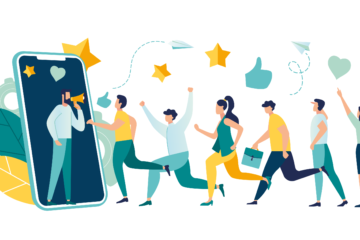
The Power of Mentorship
Building informal, collaborative relationships at work benefits the mentee, mentor and also the company.
Mentoring is an important aspect of personal and professional development. It can provide useful insights and essential resources that help propel the mentee to success. Mentoring can allow employees to learn new skills, gain access to important networks and is a great way for employees to get an insider’s perspective on how to navigate the professional scene.

What qualities should employees look out for in a mentor?
A mentor must be passionate when it comes to teaching younger employees. The most important characteristic that mentors should have is to be a good listener and put their mentee at ease, so that the mentee can talk through their issues and doubts. Good mentors also know how to ask follow-up questions to better understand the issues faced by the mentee and offer tips or advice on how to address them.
A mentor does not necessarily have to be someone in a leadership position. Some of the best mentors are people who are just a step or two ahead of you because they were in your shoes not too long ago. They can be someone with whom you share a similar mindset or career aspirations.
Getting a mentor on your own has its advantages compared to a company-provided one. Look for someone who has the skills, knowledge, and experience you need that would be relevant to the stage of your career that you are in. Make sure the mentor you choose is willing to take the time to guide you.
Reaching out to someone you admire, but whom you may not know well — especially if that person is more senior than you — can be intimidating. You can consider reaching out by sending a short email, tell them a little about yourself, why you’re reaching out and what you would like to learn from them.
A Harvard Business Review article revealed that mentees reported:
• 84% said mentors had helped them avoid costly mistakes.
• 84% became proficient in their roles faster.
• 69% were making better decisions.

Two-way learning
Mentorship should not be purely a one-way relationship. In an ideal mentorship programme, mentors and mentees should be able to learn from one another. For instance, a senior manager can share advice on leadership styles and future career path options with junior employees, while the latter could provide insights on navigating technology, social media and new media.
Most corporate mentorship programmes continue to pair mentors and mentees based on specialisation or gender rather than personality traits and lived experiences. This is far from ideal. In a mentor relationship, you often share personal aspects that could include your goals, aspirations and struggles. Hence, entering a mentorship and developing this relationship is an exercise in vulnerability.
Start small and expand the mentor relationship as time goes by. Two of the most important characteristics of a good mentorship are a willingness to show humility, and to practise transparency. That might mean confronting emotions of pain, embarrassment, or remorse—but it also can mean celebrating moments of great joy, learning and camaraderie. When you find someone whom you are comfortable with, make sure that you hold onto that relationship. This connection can eventually become a long-lasting friendship.
As you advance in your professional life, you will need different skill sets. Soft skills, such as people skills, negotiation, management and leadership, become more important and mentorship is the best way to learn.
In addition to the benefits for the mentee and mentor, companies that encourage mentoring find that it is a useful and cost-effective way to develop talent while keeping their most knowledgeable and experienced performers engaged and energised. It also allows seamless succession to emerging leaders equipped with the relevant skills and attitudes to keep their company ahead of the curve.


















